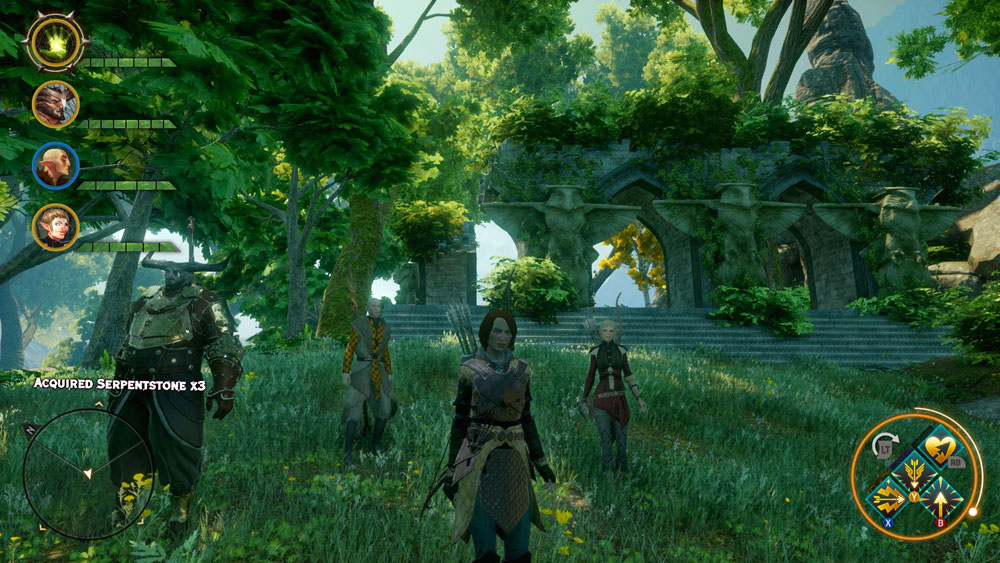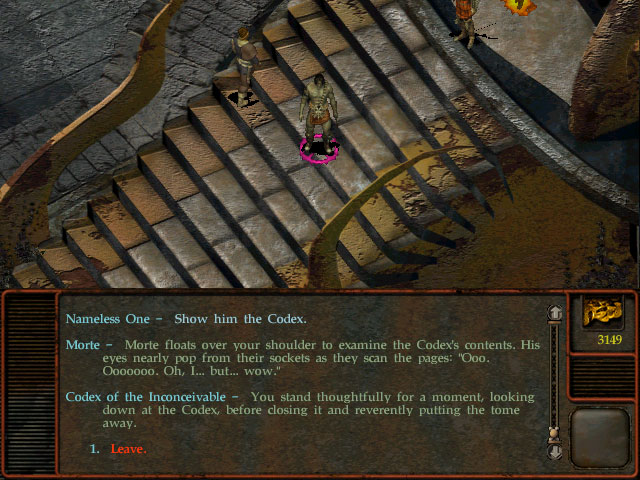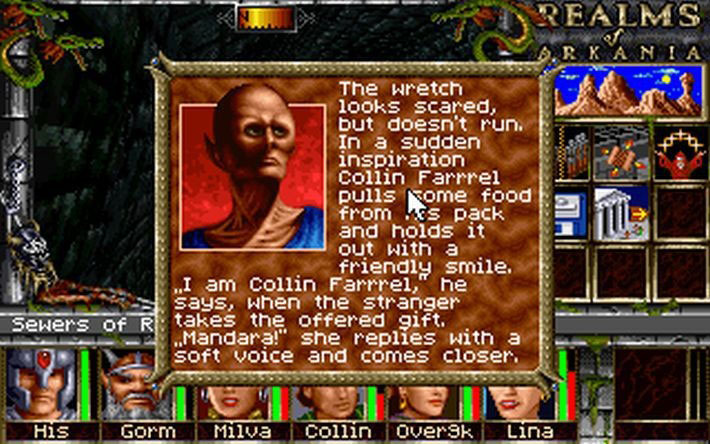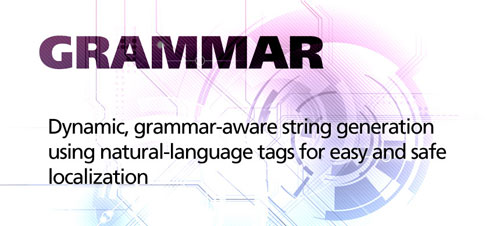When simple text generation is simply not enough: Part 1
One of the key elements in your toolbox when developing role-playing or adventure games is a smart text generation stage that allows you to intelligently create dynamic text strings on the fly so that you can embed item names, monster names, character names and other things right in the text. Simple enough, right? Well, perhaps not as you shall see.
Even in today’s world of high-end RPGs, we still frequently see text output such as this:
Acquired item: Sword

I may be over-simplifying this right now for illustrative purposes, but these impersonal, one-fits-all text snippets are the result of over thirty years of trying to avoid one basic, underlying problem—grammar in text generation.
See, in order to keep things a bit more interesting, the designers could just as well have picked a different sentence and made it look like this
or at the very least, in the fashion of old text adventure games, add an article to the respective words.
Naturally, the requirement for longer text changes with each game. Some clearly keep text short as not to get in the way of gameplay, but games that rely heavily on text are better served with more verbose string generation. It is much more in line with the narrative storytelling that classic role-playing games were striving for, and it would create a whole lot more depth, wouldn’t it? It would, no doubt, and it was one of the key ingredients that made the Realms of Arkania games such a rich and incredibly detailed experience. So why aren’t more developers doing it? Are they truly so afraid that people don’t like to read? Hardly. If any audience in the computer game world is willing to read voraciously, it is role-players and adventurers.

No, the reason is purely technical in nature. To illustrate my point, let’s assume for a moment that Samwise is not picking up a sword but some coins instead. In this instance, the text output would have to look like this…
As you can see, the sentence has changed. Slight as the change might be, it is significant. Because coins are plural, the sentence needs to reflect that, resulting in different pronouns (them as opposed to it).
Things get even trickier when we change the sentence to something more complex like this
There is, suddenly, a whole lot more grammar we have to deal with. “An orc,” and “a sword” are nouns that require indefinite articles, and as you can see there are different versions of it—“a” and “an,” depending on the word it is referring to. “It” is a pronoun referring to the sword that can change also if we are referring to a noun in its plural form. Then there is “Sam’s,” a genitive case of a name, which can also have different forms, not to mention that we need to distinguish whether we are referencing a general object like ”the orc’s eye” that requires an article, or that of a proper named object, like “Sam’s eye,” which doesn’t.
Here’s an example, how the same sentence changes if we just change some of the nouns it refers to.
Barely looking like the same sentence, in a way, but if you check closer, you will see that the sentence structure still remained the same.
I am sure you are getting the general idea of what I am trying to illustrate. Any time you make an attempt to dynamically create sentences that may contain any of a number of variable noun references, things can very quickly get rather complicated. You can’t just arbitrarily drop object names in the text and hope it all turns out right.
Funny enough, though, in English this may actually work quite frequently, especially when you stick with definite articles, but that’s only because English is a fairly simple and straight-forward language—grammatically speaking. When you get into Germanic, Roman, Slavic or Asian languages, all bets are off, because these languages have reams of grammar rules that do not even exist in English. Some feature arrays of pronouns that depend on the referring noun as well as the referred-to noun. Without a proper plan of attack, managing this kind of variety is a futile effort and will inevitably lead to a lot of code duplication and extra programming—or, God forbid, tons of specially written/translated sentences to capture different scenarios.

That is the very reason why many developers and designers will revert to the banal, one-fits-all text version I described in my opening. They are easy and safe cop-outs. Not much can go wrong when you essentially talk in bullet points. It’s just not very inspiring and certainly doesn’t help to transport you to another world. Nothing screams Middle-Earth, Tamriel or Azeroth quite like…
Acquired item: Sword
Spider: 5 damage!
Druid misses Orc
…and neither do dialogues or setups in which everything is static and every step has been predefined without any consideration for character weaknesses or traits to add personality or twists.
While developing the Realms of Arkania games, many years ago, the narrative depth was crucial to us. We wanted to make sure that we could easily adapt situations, plots, subplots and sentences to fit all sorts of situations. Those of you who played the games will certainly remember this. With a personalized party of up to seven characters, a world dense with monsters and encounters, and gameplay that featured many hundreds of items, a more strategic approach was necessary, especially because we had planned, from the beginning, to translate the game in different languages.

At the time, I developed a system that allowed us to make our text output grammar-aware but in all fairness, it was a rather clumsy, academic approach that was way too convoluted to be useful to anyone without the proper technical background. But it was a first step.
As I began designing Deathfire a few years ago, an RPG I planned on making, I approached the subject matter anew because the focus of the game was on the Psycho Engine, a piece of software that would allow me to dynamically adjust gameplay and the behavior of entities in the game on the fly. Therefore, I needed a maximum of versatility and flexibility, while also making sure the game could easily be translated into as many languages as possible. With a fresh mindset and a bit of development experience in Inform under my belt, I designed a new system.
Inform, as you may know, is a programming language specifically designed for interactive fiction/text adventures, and, as you would expect, these types of games have the exact same challenges to contend with. The key difference, however, between Inform and my grammar-aware text generation is that the Inform engine actually knows what you are referring to, because everything in the game world is defined in terms of addressable objects, whereas a generic dynamic text generation system is not aware of the actual context and needs to derive the necessary information from somewhere else.
I had never had the opportunity to actually implement the system—it was a spec design on paper, more or less—but in recent weeks, I’ve had some spare time and decided to write a C# implementation for Unity3D. With all of the above in mind, I sat down and created a code module that enables me to easily create dynamic sentences that are grammar-aware and that allow me to use natural language to define a grammatical context. In my next blog post, I will tell you the details, how it all looks like. Join me then…

